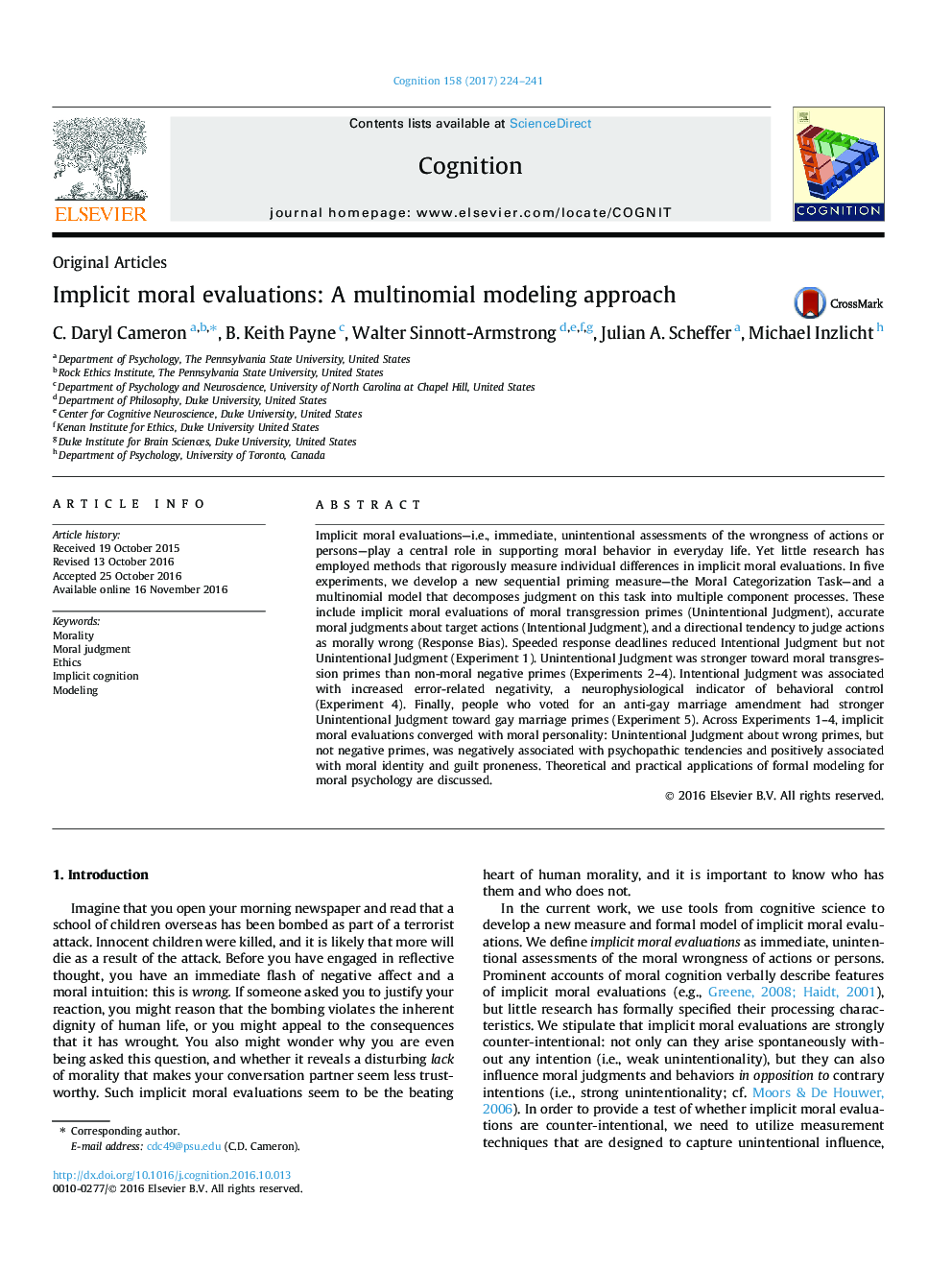| کد مقاله | کد نشریه | سال انتشار | مقاله انگلیسی | نسخه تمام متن |
|---|---|---|---|---|
| 5041695 | 1474109 | 2017 | 18 صفحه PDF | دانلود رایگان |
- We develop a novel sequential priming task to measure implicit moral evaluations.
- In the task, moral content of primes robustly impacts moral judgments of targets.
- Multinomial modeling quantifies the strength of implicit moral evaluations.
- Implicit moral evaluations are not reducible to negative affect.
- Implicit moral evaluations associate with moral personality and voting behavior.
Implicit moral evaluations-i.e., immediate, unintentional assessments of the wrongness of actions or persons-play a central role in supporting moral behavior in everyday life. Yet little research has employed methods that rigorously measure individual differences in implicit moral evaluations. In five experiments, we develop a new sequential priming measure-the Moral Categorization Task-and a multinomial model that decomposes judgment on this task into multiple component processes. These include implicit moral evaluations of moral transgression primes (Unintentional Judgment), accurate moral judgments about target actions (Intentional Judgment), and a directional tendency to judge actions as morally wrong (Response Bias). Speeded response deadlines reduced Intentional Judgment but not Unintentional Judgment (Experiment 1). Unintentional Judgment was stronger toward moral transgression primes than non-moral negative primes (Experiments 2-4). Intentional Judgment was associated with increased error-related negativity, a neurophysiological indicator of behavioral control (Experiment 4). Finally, people who voted for an anti-gay marriage amendment had stronger Unintentional Judgment toward gay marriage primes (Experiment 5). Across Experiments 1-4, implicit moral evaluations converged with moral personality: Unintentional Judgment about wrong primes, but not negative primes, was negatively associated with psychopathic tendencies and positively associated with moral identity and guilt proneness. Theoretical and practical applications of formal modeling for moral psychology are discussed.
Journal: Cognition - Volume 158, January 2017, Pages 224-241
